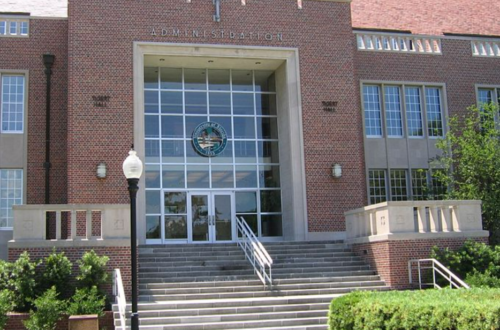Roe v. Wade, a landmark decision protecting the right to terminate a pregnancy up to 24 weeks, was overturned after more than 50 years of precedent — an atrocious attack on reproductive health and rights.
National and state abortion policies
In the June 24 Dobbs v. Jackson Women’s Health Organization decision, the U.S. Supreme Court ruled to take away the federal right to abortion.
Before the overturning of Roe v. Wade, Florida was one of several states to pass restrictions on abortion. Gov. Ron DeSantis signed a law April 14 banning abortions after 15 weeks, which does not allow exceptions for rape or incest. Correspondingly, several other states have passed stricter abortion bans.
Florida’s HB 5, formally titled the Reducing Fetal and Infant Mortality Act, aims to protect unborn fetuses “who have beating hearts, who can move, who can taste, who can see, and who can feel pain,” said DeSantis.
DeSantis exhibits his lack of knowledge about pregnancy and reproductive health — fetuses begin to hear and see around 16 to 20 weeks after conception, which is later than the state’s 15-week ban.
Nonetheless, abortion is an essential and life-saving healthcare procedure for some. Those who seek an abortion have the same right to privacy, healthcare and freedom of religion as those who do not choose to get an abortion.
Abortion bans do not ban abortions, only safe abortions. Not uniquely, Florida’s ban is unsafe for people seeking an abortion, and dangerous for healthcare providers. In some cases, healthcare providers will have to choose between severe legal consequences or saving the life of someone already living.
As a country with a shockingly high maternal morality rate, an abortion ban will only intensify this issue, especially for minority groups such as Black women, who are three times more likely to die of pregnancy-related issues.
Politicians should not make decisions restricting what healthcare services someone can receive, particularly when the law disproportionately impacts a large majority of women. Abortion is a human right.
The pro-choice fight
Several lawsuits have been filed against the state of Florida by Planned Parenthood of America, the Center for Reproductive Rights and the American Civil Liberties Union over the recent 15-week ban, which went into effect July 1.
In a case brought by the American Civil Liberties Union, Florida Judge John C. Cooper ruled to temporarily block the 15-week abortion ban based on privacy protections granted in the Florida Constitution.
However, the ban was put back in place five days later when the state appealed the ruling, ensuring the ban stays in place as the case continues.
While many organizations and groups divert focus to the blatant violation of privacy protections, Rabbi Barry Silver’s synagogue sued Florida June 10 for infringing on religious freedom. Silver’s initiative, Helping Emancipate Abortion Rights Today (HEART), aims to create a pathway for other religious organizations and atheists to challenge this extremist attack on religious and reproductive freedom.
The ban plainly violates the Constitution’s First Amendment, granting citizens freedom of religion. The ban infringes on religious liberty since several religions including the Episcopal Church, United Methodist Church, Presbyterian Church, Judaism and many more support or expect abortion to protect the wellbeing of the person carrying the fetus.
When life begins is a personal religious or moral belief, which should be free of political interference.
The future of abortion in Florida
In 2021, about 79,000 abortions took place in the state of Florida. The 15-week ban affects thousands yearly. Preventing access to medical procedures such as abortion puts people in danger of death and poverty, and strips away all bodily autonomy for those who bear pregnancy.
Sixty seven percent of Floridians support abortion in most or all cases.
DeSantis is not likely to impose further restrictions on abortion until after securing reelection due to the massive impact the law has on thousands of people in Florida who overwhelmingly support reproductive health and abortion access.
However, contending for the Republican nominee in the 2024 national election could push DeSantis to impose even harsher restrictions on abortion services after the November election.
Although Florida imposed restrictions on abortions, its abortion laws are less strict than neighboring southern states. Those seeking abortions in states with more extreme laws rely on access provided in Florida. Tighter restrictions on abortion in Florida could affect more than just Floridians — potentially the entire region.
In a statement from Planned Parenthood, Alexis McGill Johnson, president and CEO, said, “As abortion bans ripple across the country, Floridians need to be able to access care at home — and their neighbors need to be able to turn to Florida’s abortion providers as well. Planned Parenthood pledges to be there for anyone seeking an abortion in Florida, no matter what.”
Despite the promises of third-party institutions, for now, abortion access in Florida appears to be in the hands of DeSantis’ future political ambitions.
Check out other recent articles from the Florida Political Review here.
Pro-choice protest. (Unmodified photo by Jami430 used under a Creative Commons license. bit.ly/3PveqW8)





